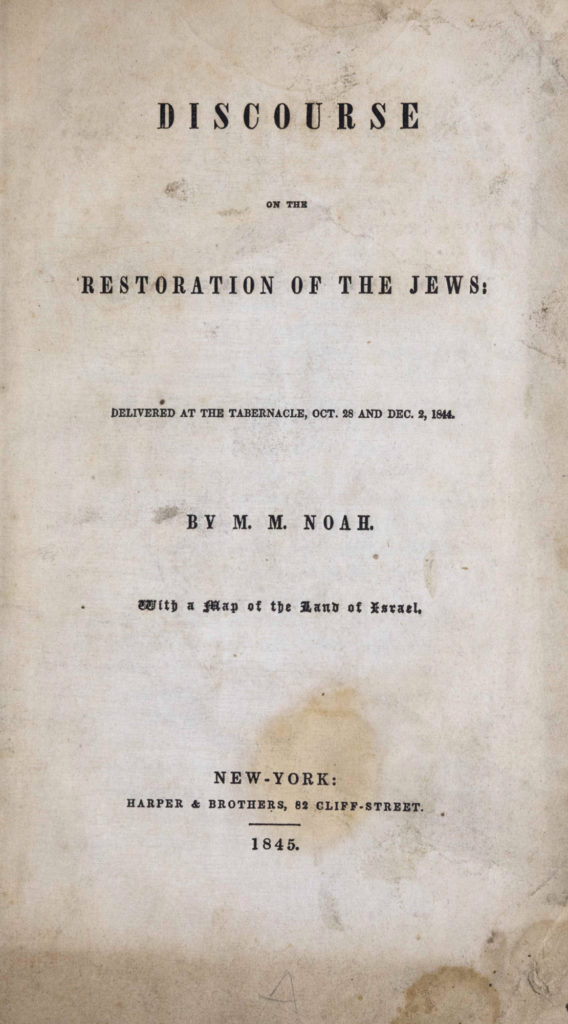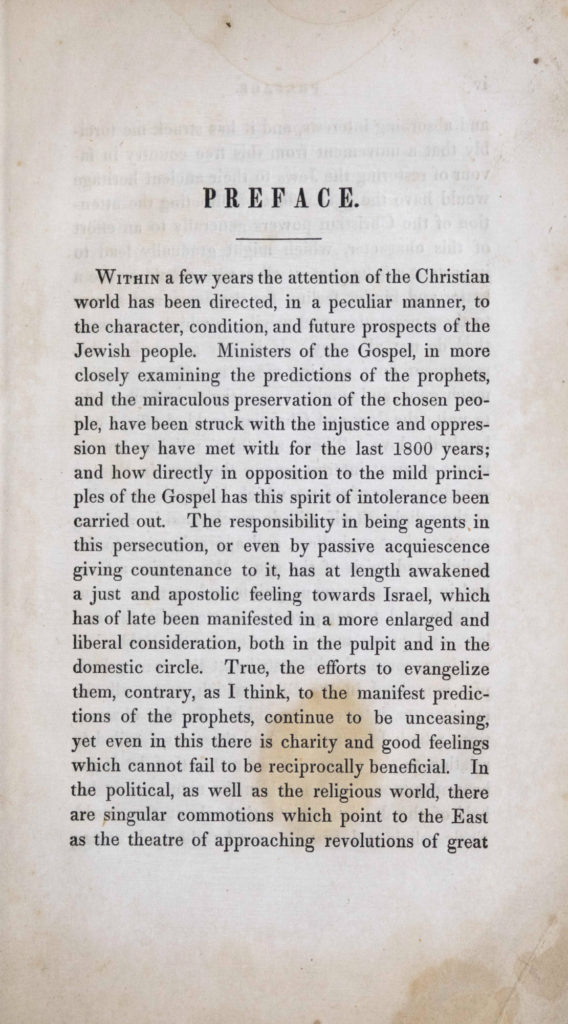Highlight from the Sidney Lapidus Collections of Judaica: Discourse on the Restoration of the Jews
AJHS Board Chairman and CJH Board Treasurer Sidney Lapidus is not only a dedicated and generous philanthropist, but also a great collector of Anglo-American political treatises and essays and lawbooks on slavery, many of which he has donated to his alma mater, Princeton University, and to the Schomburg Center for Research in Black Culture, where he has established the Lapidus Center for the Analysis of Transatlantic Slavery.
Sid has also collected and donated 36 books, other bound materials and ephemera to the American Jewish Historical Society—and 125 items to the Center for Jewish History—dealing with debates over the status and rights of Jews in a period in which Enlightenment ideals were clashing with old religious bias and stereotypes.
Today we are highlighting one item from the Lapidus Collection, M. M. Noah’s Discourse on the Restoration of the Jews, which Sid donated to AJHS. Noah (1785-1851) was one of the most interesting and prominent Jews in early 19th-century America. A diplomat and playwright, Noah is perhaps best known for his plans to create in 1825 a “city of refuge for Jews” on Grand Island in the Niagara River to be known as Ararat, after the mythic site where Noah’s ark is said to have landed after the flood.
In the Discourse in the images above, from 1845, Noah reveals the extent to which he joins in the fervor of many Christians in the 19th century who desired the return of the Jews to the Land of Israel as part of the messianic process. Noah gave voice in the Discourse to his own powerful redemptive hope: “I confidently believe in the restoration of the Jews, and in the coming of the Messiah.” He went on in the book to advocate on behalf of the Jewish people, calling on his readers to “do justice to their character, to their motives, to their constancy, and to their triumphant faith.”
Noah’s treatise is a reminder that, notwithstanding the fact that leading American politicians such as Thomas Jefferson and John Adams had evinced sympathy for the Jews, tolerance toward them was neither universal nor guaranteed. It was, in Noah’s vision of America, a reasonable and not-too-far-off expectation.
- David N. Myers, President and CEO of the Center for Jewish History.





 Center for Jewish History Awarded Multi-Million Dollar Grant from Arcadia Fund
Center for Jewish History Awarded Multi-Million Dollar Grant from Arcadia Fund